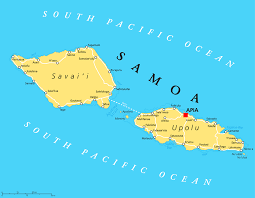Treatments for Urinary Stones
Dr Shawn XIAO, Medical Doctor, Deputy Chief Surgeon, Department of Urology Surgery, Affiliated Hospital of Guizhou Medical University (GMU)
HELLO, my lovely friends, I am Dr Shawn, a urologist of the China Medical Team in the Solomon Islands. As we’ve discussed in previous passages, urinary stones are a prevalent urinary disease that can lead to severe and sudden pain in the lower back, accompanied by vomiting and fever. If your family or friends are experiencing these symptoms, it is advisable for them to seek prompt medical attention. Health providers can conduct examinations such as urinary ultrasound, X-ray, and CT scans to diagnose the condition.
Today, I would like to share some information about the treatments available for urinary stones.
Advancements in medical technology have led to the development of minimally invasive surgeries for treating urinary stones. These procedures are characterized by less pain, fast recovery, and minimal impact on daily life and work, greatly benefiting patients. Some of the procedures include extracorporeal shock wave lithotripsy, ureteroscope lithotripsy, flexible ureteroscope lithotripsy, percutaneous nephrolithotomy, and laparoscopic surgery.
It’s essential to dispel the misconception that the degree of lower back pain is directly proportional to the size of the stone in the urinary tract. Not all cases require surgical intervention. For instance, patients with small and smooth stones measuring less than 6 mm in diameter, and no urinary tract obstruction, may opt for home remedies. These may include drinking more water, engaging in moderate exercise, and maintaining a balanced diet to facilitate the excretion of small stones and prevent relapse without resorting to surgery.
However, for patients with large stones or in complicated conditions, surgery may be necessary. The urologist considers factors such as the size, location, and degree of stones, as well as the patient’s overall physical condition, to recommend the most appropriate treatment plan.
In conclusion, urinary stones are a systemic disease that necessitates adjustments to lifestyle, including drinking habits, diet, and exercise. The recurrence rate of stones after surgery is high without these lifestyle changes. Therefore, prevention is crucial, and it plays an equally significant role as treatment. For those with urinary tract stones, my suggestion is to focus on both prevention and treatment.
At the National Referral Hospital, I’ve been collaborating closely with Dr. Melly Augustine’s team, successfully treating many patients with urinary stones. We have developed the capability to perform various procedures, and our specialist outpatient clinic is open every Monday morning to address your health concerns. In the next issue, I will share more health tips about urinary diseases, so please stay tuned.
(Translated by HUANG BAILIN, International Office, Guizhou Medical University)












